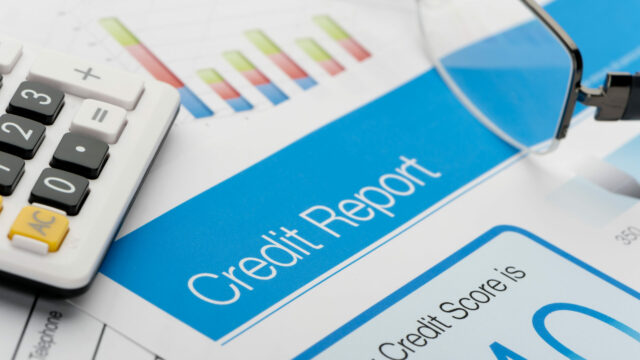You’ve probably heard that you need good credit to qualify for a mortgage. And every homebuyer can expect their lender to run a credit check on them to see how responsible they are at handling debt.
But the good news is that your credit doesn’t have to be perfect! Plus, homebuyers can improve their credit by taking one or more of the following steps.
Pay Your Bills on Time
This sounds like a no-brainer, but the reality is that a whopping 35% of your credit score is influenced by whether or not you pay your bills on time. By consistently paying your debts, you’re showing your lender that you’re capable of managing your finances responsibly.
On the other hand, one late payment can cause your credit score to drop by 100 points or more—plus it can remain on your credit report for seven years. Yikes!
One way to guarantee your bills are paid on time is to set up automatic payments or transfers from your bank account. If you’ve recently missed a payment, contact your creditor right way to make arrangements and request that they don’t report the late payment to the credit bureaus. It doesn’t hurt to ask!
Pay Down Your Balances
Another major factor behind your credit score is your credit utilization rate, or the percentage of available credit you’re using at any given time. In terms of the impact on your score, credit utilization is second only to your payment history.
Basically, the higher your credit utilization, the lower your score. To improve your score, it’s advisable to use no more than 30% of your limit on a card at any given time.
The more you pay down those cards, the more your score will improve. If you can’t pay down all your cards at once, try making small regular payments once or even twice a month. There are even tools available that can show you different scenarios to help you determine what debts to focus on. In fact, Right By You Mortgage loan officers have a convenient ‘What-If” credit simulator at their disposal to show you how paying off or paying down certain debts could impact your credit score. By chipping away at your balances over time, your score will eventually rise.
Don’t Apply for More Credit
If you plan on buying a home in the next six to 12 months, you should resist the urge to borrow more money. Taking out a car loan, for example, could not only impact your credit score, but it will also increase your debt-to-income ratio (or DTI), which can lower the amount of money you can borrow to buy a home.
In addition, every time you apply for credit, a credit inquiry is reported to the credit bureaus. Too many inquiries in a short period of time can lower your credit score.
A Few Other Tips
Making timely payments, paying down debt, and avoiding new loans are the best ways to improve your score. But there are other things that can help too, depending on your particular situation and financial goals:
Keep your card accounts open. It may seem like a good idea to close down credit accounts once you pay them off, but it can actually hurt your credit utilization rate and your score. Instead, keep your accounts open and the balances low with regular payments.
Check for errors on your credit report. You’re entitled to free reports from all three major credit bureaus, Equifax, Experian, and TransUnion. Get them and check them for inaccuracies, such as incorrect late payments. If you find any, contact the credit bureaus to dispute them.
Ask to increase your card limits. As long as you don’t add to your card balances, having more credit available will lower your utilization rate and boost your score.
Keep in mind that building strong credit is a marathon, not a sprint. In other words, it can take a while for these steps to improve your score. However, the stronger your credit, the more likely you’ll be able to qualify for a mortgage with the best rate and terms.
Have more questions about the type of credit you’ll need to get a mortgage? Contact a local mortgage loan officer or email us at inquiries@rightbyyoumortgage.com.









